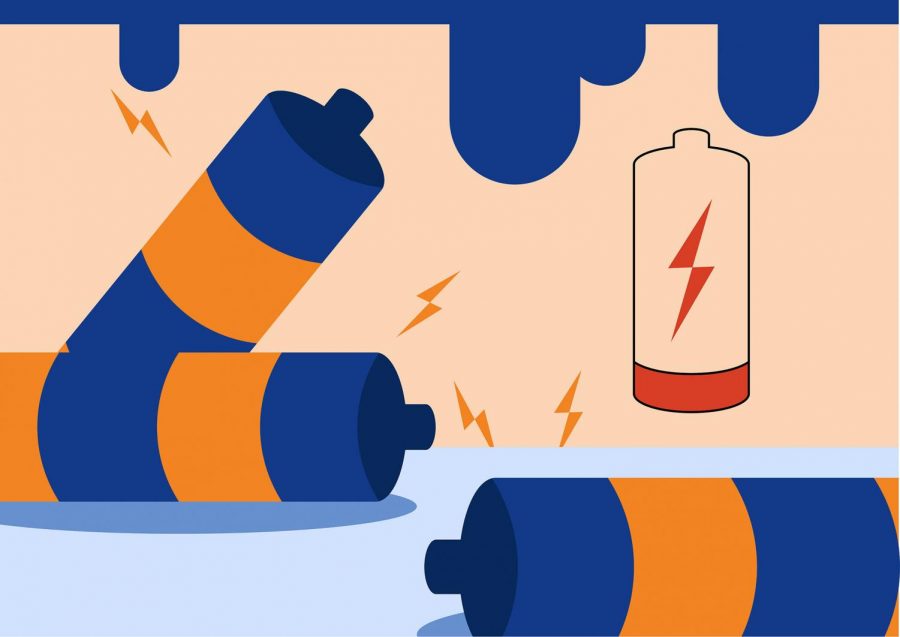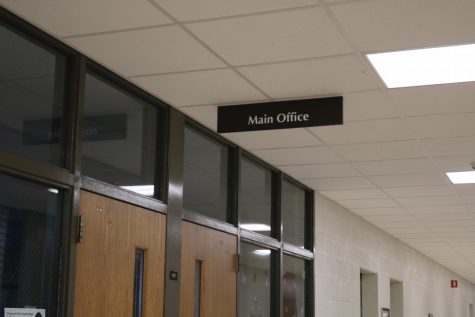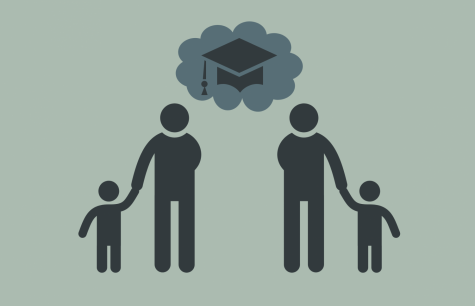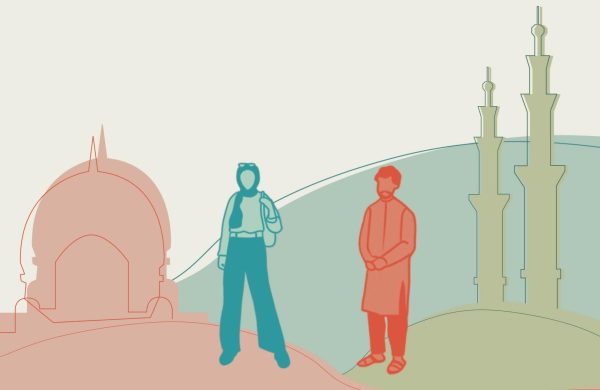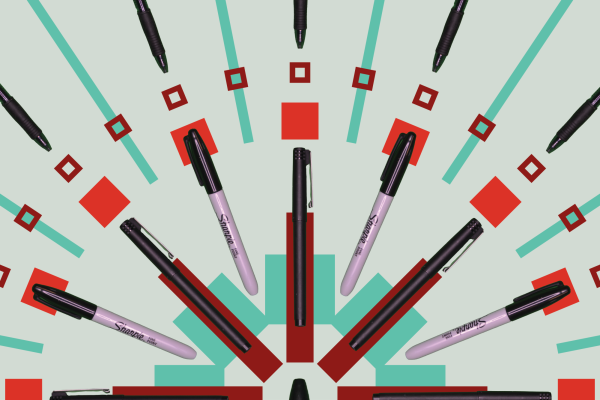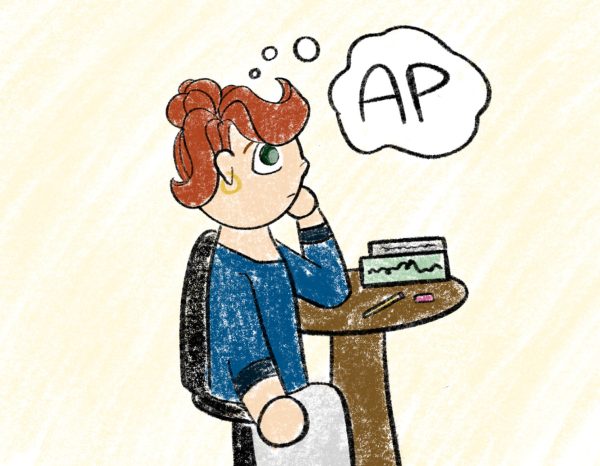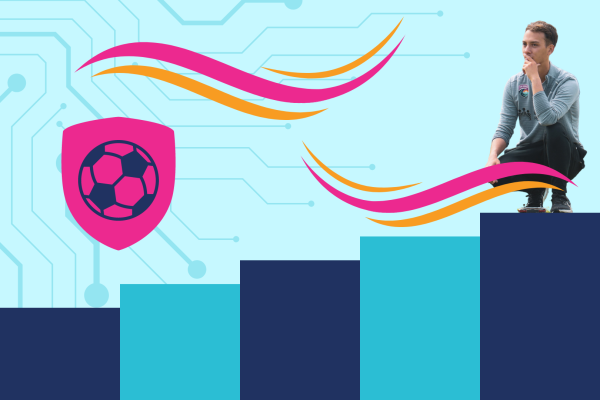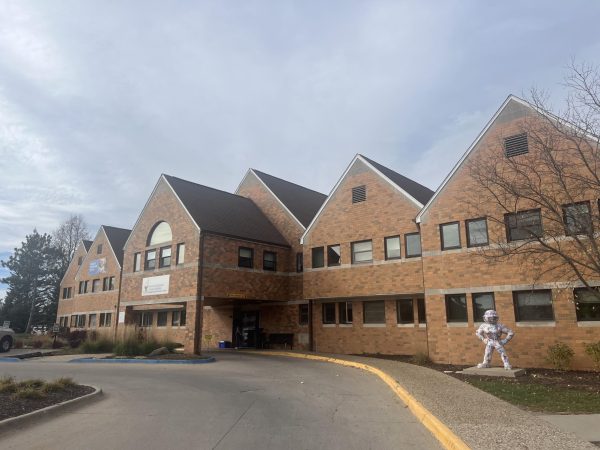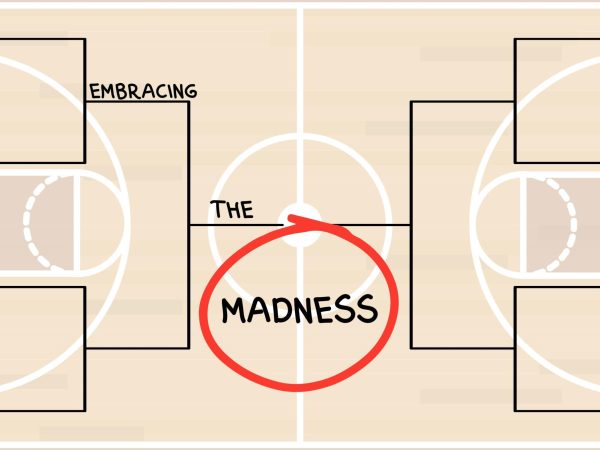Battling burn-out
As students return from learning online to in-person, many undergo an exhausting transition period.
As students return from learning online to in-person, many undergo an exhausting transition period.
Last year, many students opted to learn from home, often citing the threat COVID-19 posed to the safety of themselves and others. As more individuals were vaccinated and knowledge about COVID-19 increased, students attending online school chose to return to learning in person this year. However, there is a significant difference between staying engaged in a school building for seven hours versus half a day of Zoom classes. Poor sleep schedules, heavy school workloads and general feelings of weariness have made the switch to in-person learning an exhausting process for many students.
While online, students could attend classes in bed, making school in person a starkly different reality. Students now develop unhealthy and unsustainable routines as they try to juggle classes, schoolwork and extracurriculars with much less time, for the school day now takes up seven hours of the day.
Nao Oya ’23 is one formerly online student who finds herself staying up until 3 or 4 a.m. to complete assignments. This creates a cycle in which she is tired during school the next day and cannot fully engage during her classes.
“I literally fell asleep [in class] … every time I would look at the words on the paper, I felt like they’d be shaking,” Oya said. “I didn’t learn anything.”
Anjali Lodh ’25 often gets only six hours of sleep and does not have time to eat breakfast, both of which intensify her exhaustion.
“It was hard adjusting from only half-days last year to full days and longer periods … and it’s really hard to wake up on time after staying up late to do homework,” Lodh wrote in a WSS survey response.
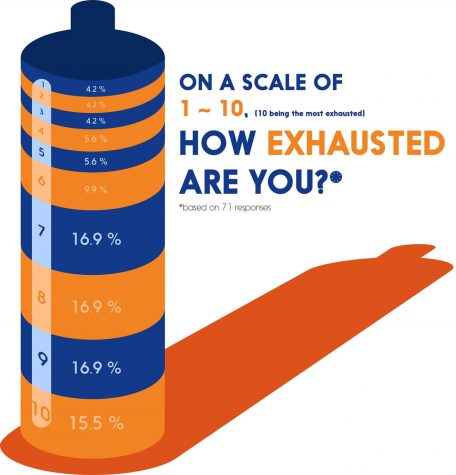
English teacher Darien Robins has noted significant exhaustion and stress amongst his students, with mental health being almost as poor as last year. In his classroom, Robins has observed students frequently struggling to return from a largely digital environment last year to a physical space in which they must participate.
“For the last year and a half, my students spent a lot of time in a digital space,” Robins said. “Their body was secondary. [Students] are still struggling to get off of their phones … and away from their digital selves.”
With online school, the schedule was divided into half-days, allowing students additional time to spend on homework assignments during asynchronous time. Now in person, students struggle to manage intense workloads that dominate their lives.
“I literally bawl my eyes out because I have so much homework,” Oya said. “Sometimes I won’t want to go to school because I don’t want the feeling of having so much homework.”
Oya has observed how missing just one assignment can snowball, making an individual so behind that they no longer care. She also believes teachers must acknowledge students’ lives outside of class, including activities other than homework, such as jobs and extracurriculars.
“It’s such a crazy adjustment from staying at home,” Oya said. “I can’t imagine being in a bad place but also having to do so much work for school.”
Robins notes that the struggle of living through a pandemic plays into student burnout.
“The last year and a half are very much still with students,” Robins said. “They’re exhausted … those fears, those stressors, those conversations and the fact that they are not over.”
The last year and a half are very much still with students,” Robins said. “They’re exhausted … those fears, those stressors, those conversations and the fact that they are not over.
— Darien Robins
The balance of schoolwork and personal life becomes even trickier with a job. Miles Davies ’22 is one of the students who has been impacted, as he works 10 to 20 hours a week at Fareway. As a senior, Davies also has the extra challenge of applying for college and scholarships.
“The combination of busier school with other big events is causing stress and exhaustion,” Davies wrote in an email. “Schoolwork is less of a priority than it was before, and I find myself cutting more corners and doing the minimum more often.”
Ella Houston ’24 has also described the transition of moving to in-person learning as challenging. The shift back to a classroom environment and the slower pacing of being in person have been detrimental to her mental health.
“Last year, I was genuinely much happier. I could still talk to my friends, and I had time to myself, but now that I’m back in person, I can’t seem to catch a break ever,” Houston wrote via survey.
Last year, I was genuinely much happier. I could still talk to my friends, and I had time to myself, but now that I’m back in person, I can’t seem to catch a break ever,
— Ella Houston '24
This transition also led to Houston feeling like she lost progress that she had made as a student during online school.
“COVID helped me develop some better habits that I can apply to this year but didn’t have in junior high. However, I’m largely back to the same state of learning that I was [in] before COVID,” Houston wrote.
Similarly, Lodh feels as though she has become a worse student this school year.
“I don’t have as much time,” Lodh said. “Now, I have to do the bare minimum just to get an A instead of going above and beyond like I used to.”
Lodh’s perspective has also evolved. Because she was in seventh grade at the pandemic’s onset, the transition to high school has been made even harder coming from online school.
“High school is definitely a lot harder for me,” Lodh said. “If I was in seventh grade and saw some of my grades now, I’d feel like ‘Oh my God, this is horrible,’ but right now, I don’t think I’m doing awfully.”
Like Oya, Lodh believes teachers could be more accommodating when it comes to lessening the burden of homework.
“Teachers should be more receptive to when their assignments get to be too much,” Lodh said. “They’re not really thinking about the workload of all the other classes added up. They’re like, ‘It’s not too much for this one student [in] this one class.’”
Robins’ primary objective is to ensure that his students enjoy class while learning. Consequently, he tries to make all students’ learning individualized, allowing room for accommodations and curriculum adjustments. While some students may feel as if their concerns are not being addressed, Robins emphasizes that all West educators are focused on enhancing their students’ learning.
“Even if … you have a rough conversation with a teacher and administrator, know that we’re just trying so hard to build something that helps you,” Robins said.
Aside from the burden of rigorous academics on students stepping back into the school building, the social demands of interacting with others non-stop for an entire school day can also be draining.
Jay Mascardo ’23 has noticed a pattern of burnout among their friends, especially those who are introverted.
“The constant being in-person … going from class to class seeing people, being overwhelmed by people can be exhausting,” Mascardo said. “It seems very monotonous and just tedious and lame.”
Contrary to some of their classmates, Mascardo’s outlook on returning to in-person learning is largely positive. Mascardo enjoys the ability to regularly check in on their friends, unplug from technology and participate in a physical classroom with a teacher.
“[I have enjoyed] being able to get the education that I feel is most helpful for me and I’m able to see my friends and everything and check in how they’re doing. It’s just so much easier,” Mascardo said.
Acknowledging how difficult living through a pandemic is has helped Mascardo navigate this shift in learning models.
“You’re in a pandemic; you are a teenager,” Mascardo said. “At your age, [your parents] were not in a global pandemic. They don’t have all of these things that make your life so hard.”
Oya’s advice for those battling the burnout that comes with learning in person is to find the time to reset and prioritize self-care.
“Just take a break. It doesn’t really help if you’re super overwhelmed,” Oya said.
Mascardo also finds that fatigue will diminish one’s quality of work and negatively impact the following day.
“If you’re exhausted, sleep.That’s better than doing a [mediocre] job and then feeling awful the next morning because you got three hours of sleep,” Mascardo said.
Oya stresses that maintaining one’s mental health should come before school. “School is important, but it’s not everything,” Oya said. “You don’t want to ruin your mental health over school.”
Your donation will support the student journalists of West High School. Your contribution will allow us to purchase Scholarship Yearbooks, newsroom equipment and cover our annual website hosting costs.
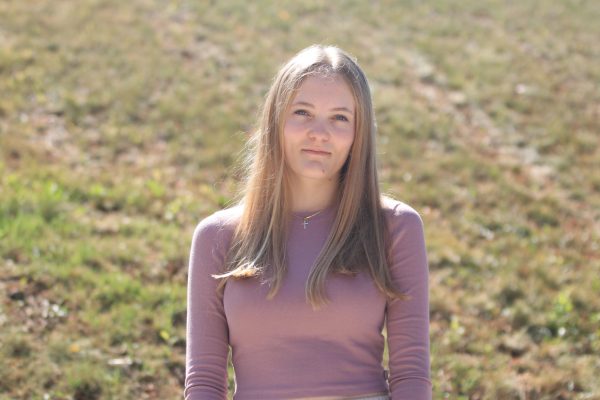
(she/her) Lilly Graham is a senior at West, and this is her third year on staff. Lilly is the Managing Editor for the print edition. Outside of school,...
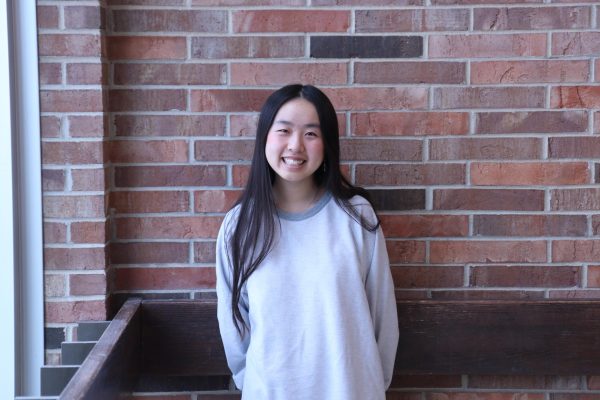
(she/her) Jane Lam is a senior at West High. This is her third year on staff reporting for the print publication. As an assistant copy editor, she loves...



